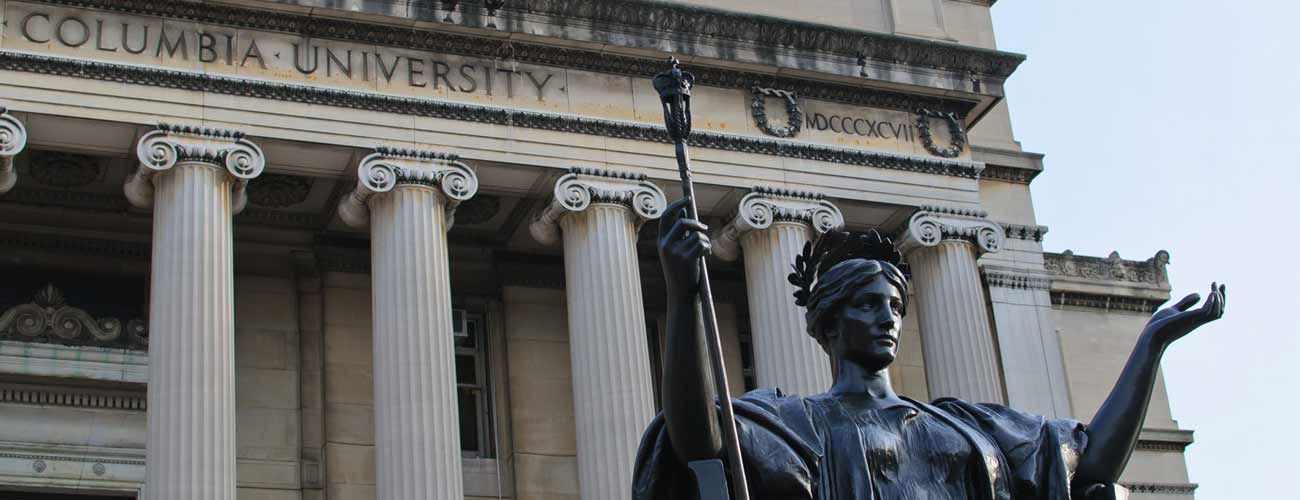Sign up for the daily CJR newsletter.
The Knight Foundation and Columbia University today announced the creation of a new center that will use research, education, and litigation to advance First Amendment rights in the digital age. An independent 501(c)(3) nonprofit organization, the Knight First Amendment Institute at Columbia University is backed by $60 million in funding—and it is launching at a time of growing concern about the First Amendment’s application to new technologies.
Knight and Columbia will contribute $5 million each in operating funds and $25 million each in endowment funds, according to a press release announcing the effort. The institute will use the funds to work on court cases that present opportunities to define—or redefine—free-expression principles, with an emphasis on digitally oriented cases. The plan also calls for research, publications, and events to educate the legal community on emerging First Amendment issues.
There’s no hard timeline for the institute’s opening, but a search is ongoing for a director, said Lee C. Bollinger, president of Columbia University. The institute is expected to take shape in the coming year, with a board that will include faculty from Columbia’s law and journalism schools and people from outside the university.
Bollinger himself is a distinguished First Amendment scholar and the author of several books on press freedom and free speech. In a phone interview yesterday, he said he won’t have a formal position at the institute, but he relates personally to the work that will be done there.
“My father owned a small-town newspaper and I worked there as a kid, and when I began as a scholar, I gravitated to the issues around new communication technologies—and to the issues around extremist speech,” Bollinger said. “I believe the freedoms of thought and expression, and of academic freedom, represent the central values of a modern society. I’ve devoted most of my life to those values, and I’m sure that had an impact on my thinking about the institute.”
Bollinger said he and Alberto Ibargüen, the Knight Foundation’s president, had been discussing the digital-era challenges facing the First Amendment for more than a year before they converged on the idea of creating the institute. A patchwork of organizations, including nonprofits, private firms, and law school clinics, all work on First Amendment problems, Bollinger said, adding that he hopes the Knight-Columbia institute will distinguish itself through its scholarship and “serious action-oriented litigation strategy.”
“We’re at the beginning of an era of figuring out how to develop principles that, going forward, will govern all kinds of public speech,” he said. “I’m referring to issues around the right to be forgotten, around government surveillance, around social-media regulation, and around the mass release of classified information. This is a vibrant field that requires extensive thought and analysis—and the determination to have an impact in the world.”
A press release announcing the news noted the institute launches at a time of growing concern over the use of digital technology in courtrooms, free speech on college campuses, shield laws, crackdowns on whistleblowers, and FOIA delays. “This is a precarious moment for the First Amendment, and with this institute we hope to establish a primary, permanent, influential advocate of free expression,” Jennifer Preston, Knight’s vice president for journalism, said in the statement.
The announcement follows other recent free-expression initiatives at both Knight and Columbia. In 2014, for example, the university launched Columbia Global Freedom of Expression, while the foundation says it has now invested more than $100 million in programs dedicated to First Amendment principles. The announcement also follows a Knight survey last month finding that editors nationwide are losing confidence in the press’s ability to fulfill its role as a First Amendment defender.
In that survey, which was conducted in partnership with the American Society of News Editors, Associated Press Media Editors, and the Reporters Committee for Freedom of the Press, 53 percent of editors agreed that “news organizations are no longer prepared to go to court to preserve First Amendment freedoms,” and 65 percent said the media industry is weaker than it was 10 years ago in terms of its capacity to litigate to defend those freedoms.
That’s a big problem because, as I’ve written before, the media historically have shaped First Amendment law by paying the bills to bring important cases. Knight said in April that the survey highlighted “the need to understand the changing First Amendment landscape” and announced a $200,000 grant to the Reporters Committee to “advance that understanding through legal action.”
Soon, the new institute will join that effort.
“The world is changing, press institutions don’t have the resources they used to have, and new media might have the resources but not yet the ethos,” Bollinger said. “Wouldn’t it be good to fill in some of those gaps? I think so, and I’m happy we’re trying.”
Editor’s note: Neither the author nor CJR has had any involvement in the creation or planning of the Knight First Amendment Institute at Columbia University. Photo by Flickr user InSapphoWeTrust used under a Creative Commons license.
Has America ever needed a media defender more than now? Help us by joining CJR today.







